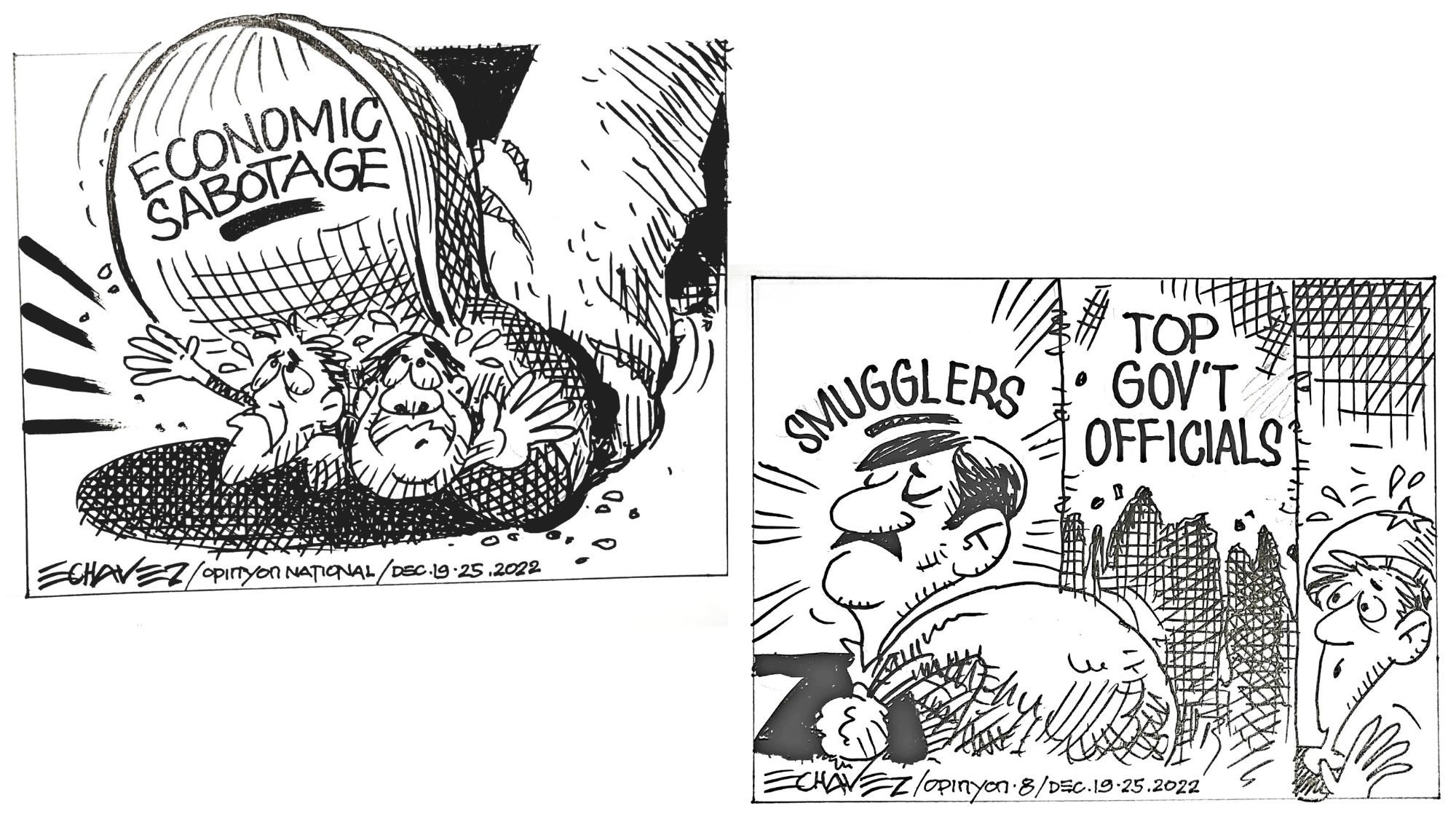On December 13, Sen. Joseph Victor Ejercito responded to mounting calls to toughen the sanctions against agricultural smugglers including slapping non-bailable charges of economic sabotage to effectively end their illegal activities.
I have been mouthing this for years but why are they just thinking of it now. Was it because the supply chain was disrupted by the pandemic that we now find ourselves in a dire situation of shortages in food items and even materials for our export products like semiconductors and electronics.
For one, the farmers and fishermen have been hard-pressed competing with these food products that are dumped in our country and being sold in the same markets of their products and considering they slipped into our shores illegally, they are presumed to be cheaper (which is not always the case as supply can be manipulated by traders to force prices up).
These smugglers not only deprive us of revenues and tariffs that government should have collected upon their entry but they also ease out the homegrown products of our local farmers from the same market.
But it has been often said that most of the smugglers are themselves untouchable because they are supported and backed by top officials of the land, including legislators. The astute and honest people at Customs are forced to look the other way whenever the illegal cargoes are removed from the warehouses and ports of entry.
We should not limit the stiff sanctions against the smugglers alone but up to their backers, whoever they are. We can’t go on fooling ourselves by always running after the small fry and leaving the big fish swim away from the sticky mess they planned out.
Ejercito was furious that farmers had already warned the government of over 20 identified smugglers bringing in white and red onions, rice and frozen meat products into the Philippine port.
Ejercito declared, “It is time to crush this group,” adding, “let’s slap them with economic sabotage charges because this is non-bailable. They are destroying the livelihood of our farmers, said a Business Mirror report.
Ejercito authored the Anti-Agricultural Smuggling Law and it saddens him that smugglers continue with their illicit trade despite the law’s passage six to seven years ago and people are ignoring it.
Rosendo So of Samahang Industriya ng Agrikultura (Sinag) said several new smugglers, not included in the previous list submitted to Senate, are now operating. His group is currently working with the Department of Agriculture (DA) and Bureau of Customs (BOC) in pressing “economic sabotage charges against individuals involved in bringing in P30 million worth of smuggled white onions recently confiscated at the Manila International Container Port. “
He recalled that during the sugar fiasco hearings with DA, he blasted at agriculture officials for failing to implement the measure and for promoting excessive importation, which harm small farmers.
“We passed the Anti-Agricultural Smuggling law, classifying large-scale agricultural smuggling as a heinous crime and a [form of] economic sabotage. And yet we keep resorting to importations. So if they’re not smuggled, the farm products are excessively imported,” he lamented.
He said the Customs modernization efforts should be geared toward curbing agricultural smuggling and addressing alleged widespread corruption within the agency.
